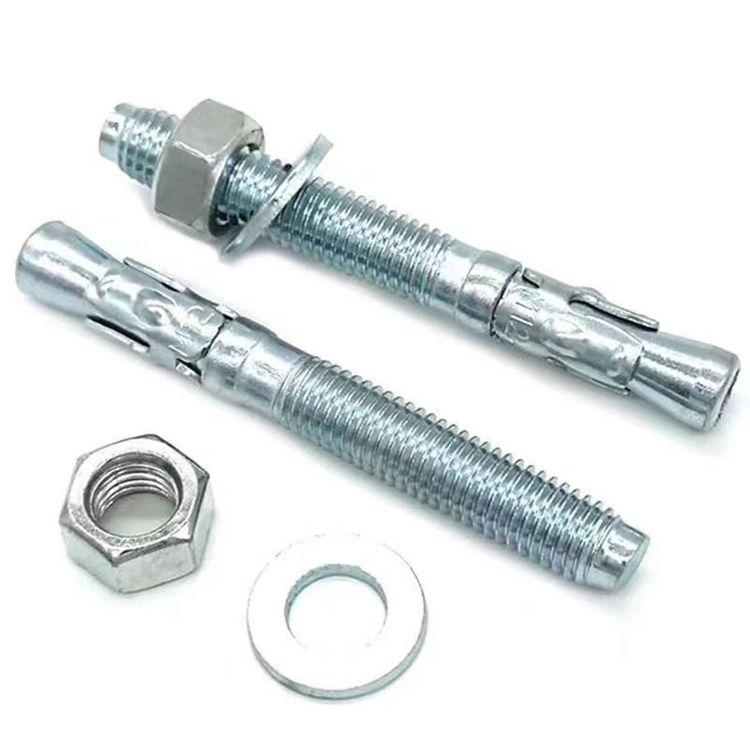clevis bolts suppliers
des . 12, 2024 04:30 Back to list
clevis bolts suppliers
Clevis Bolt Suppliers A Comprehensive Guide to Finding the Right Provider
Clevis bolts are essential components used in various mechanical applications, providing a reliable and robust solution for securing and connecting parts. Their unique design features a head, a shank, and a clevis that form a joint when paired with a clevis pin. These fasteners are widely used across multiple industries, including construction, automotive, aerospace, and marine applications. As the demand for clevis bolts continues to grow, finding the right suppliers who can deliver high-quality products is crucial.
Understanding Clevis Bolts
Before diving into the criteria for selecting suppliers, it is important to understand what clevis bolts are and their applications. Clevis bolts are typically made from materials like steel, stainless steel, or other alloys, ensuring strength and durability. These bolts are often subjected to various loads and environmental conditions, making the choice of material and finish critical. Common applications for clevis bolts include
- Construction Used in scaffolding, rigging, and structural applications where secure connections are paramount. - Automotive Assisting in attaching various components where a strong and secure fastening is necessary. - Aerospace Employed in aircraft structures and systems that demand high reliability and performance. - Marine Ideal for securing parts in boats and ships, where resistance to corrosion is essential.
Why Supplier Selection Matters
Choosing the right supplier for clevis bolts is crucial for ensuring product quality, compliance with industry standards, and timely delivery. A reliable supplier can help you avoid quality issues that could lead to project delays or safety concerns. Here are several factors to consider when selecting clevis bolt suppliers
1. Quality Assurance Investigate whether the supplier adheres to recognized quality standards such as ISO 9001 or ASTM specifications. Certifications indicate that the supplier maintains consistent quality in their products. A reputable supplier should provide test reports or certificates confirming the specifications of their clevis bolts.
2. Material Selection Different applications require different materials. Ensure the supplier offers a variety of options, such as stainless steel for corrosion resistance or high-strength carbon steel for heavy-duty applications. Ask about material certifications to confirm that the products meet the required mechanical properties.
clevis bolts suppliers

3. Range of Products A good supplier should offer a wide range of clevis bolts in various sizes, grades, and finishes. This flexibility can help you find the right product for your specific application without needing to source from multiple suppliers.
4. Customization Options Some projects may require custom lengths, diameters, or finishes. It could be beneficial to work with a supplier who can accommodate special requests or custom manufacturing.
5. Lead Time and Availability Timely delivery is vital in many industries. Inquire about the supplier's lead times and inventory levels for clevis bolts. A supplier with adequate stock levels can reduce delivery times and help you stay on schedule.
6. Customer Service and Support A supplier's customer service can significantly impact your purchasing experience. Look for a company that offers technical support, responds promptly to inquiries, and has a knowledgeable sales team. Good communication is essential for resolving any issues that may arise during the procurement process.
7. Reputation and Reviews Conduct research to learn about the supplier's reputation in the industry. Reading customer reviews, case studies, and testimonials can provide insight into the reliability of the supplier and the quality of their products.
8. Pricing and Payment Terms While cost shouldn’t be the only determining factor, it is important to find a supplier that provides competitive pricing without compromising on quality. Additionally, inquire about payment terms and any discounts for bulk purchases, which can help manage project budgets effectively.
Conclusion
Finding the right clevis bolt supplier requires careful consideration of several factors, including quality assurance, product range, material specifications, and customer support. By thoroughly researching potential suppliers and considering your specific needs, you can establish a reliable partnership that contributes to the success of your projects. Remember, the quality of the fasteners used in your applications can make a significant difference in performance and safety, so choose wisely!
Latest news
-
Premium Wire Bolts Suppliers | High-Quality Bolts
NewsAug.05,2025
-
Trusted Wire Bolts Suppliers - Durable & Reliable Solutions
NewsAug.04,2025
-
Wire Bolts Company | Premium Industrial Fasteners
NewsAug.03,2025
-
Top Wire Bolts Suppliers | AI-Optimized Fast Delivery
NewsAug.02,2025
-
Top Metric Wood Screw Companies | Durable & Reliable
NewsAug.01,2025
-
Premium Lawn Mower Handle Bolts Supplier | Fast Delivery
NewsJul.31,2025
